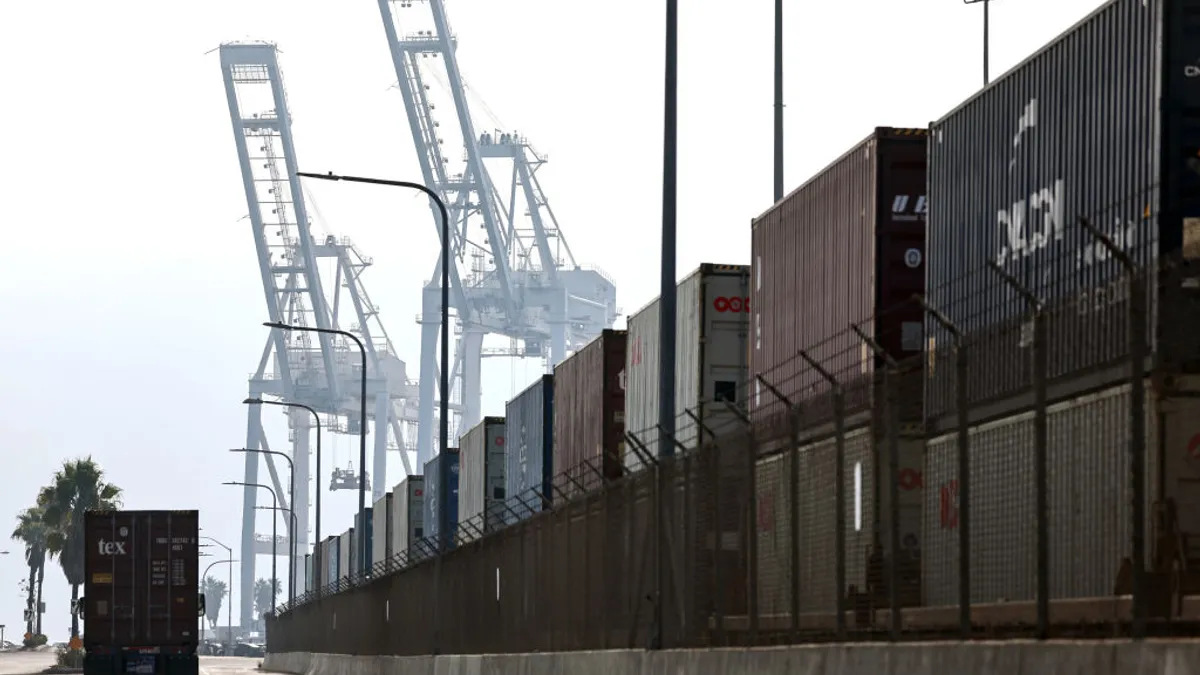President Donald Trump’s executive orders implementing tariffs on China, Mexico and Canada all share one detail that could help logistics managers save on last-minute costs: shipments in transit may not have to pay the duties.
Duties will apply to “goods entered for consumption, or withdrawn from warehouse for consumption, on or after 12:01 a.m. eastern time on February 4, 2025,” according to each order.
While tariffs on goods from Mexico and Canada have since been delayed until March, goods shipped from China prior to Feb. 1 can avoid the duty upon arrival in the U.S. if they meet two specific conditions. This also would have been true for shipments from Mexico and Canada prior to the implementation delays.
First, the product must have been “loaded onto a vessel at the port of loading” or have been “in transit on the final mode of transportation prior to entry into the United States” before 12:01 EST on Feb. 1.
Second, the exception will apply “only if the importer certifies to CBP as specified in the Federal Register notice,” according to the order.
“Our understanding is that if the goods were laden onto the vessel — the final vessel heading into the U.S. — it will be exempt from the tariffs,” William Jansen, director of customs brokerage and account management for e-commerce at Seko Logistics, told Supply Chain Dive in an interview.
The Federal Register has a few specific exemptions for China such as including Hong Kong in the tariff eligibility.
Also for products of China, there is tariff exemption for goods laden prior to Feb. 1 and arriving prior to March 7.
It is not common practice to certify the exact date products are laden on vessels, Jansen said, but shippers will need to document tracking details to ensure they can prove goods were in transit prior to the tariff enforcement date.
Still, the detail is a welcome respite for shippers who may have front-loaded imports in anticipation of potential tariffs, as well as those with goods currently in transit, according to Jansen.
“I think that the companies that have already front-loaded their purchase orders are the ones that are going to be in a good spot here,” Jansen said.














